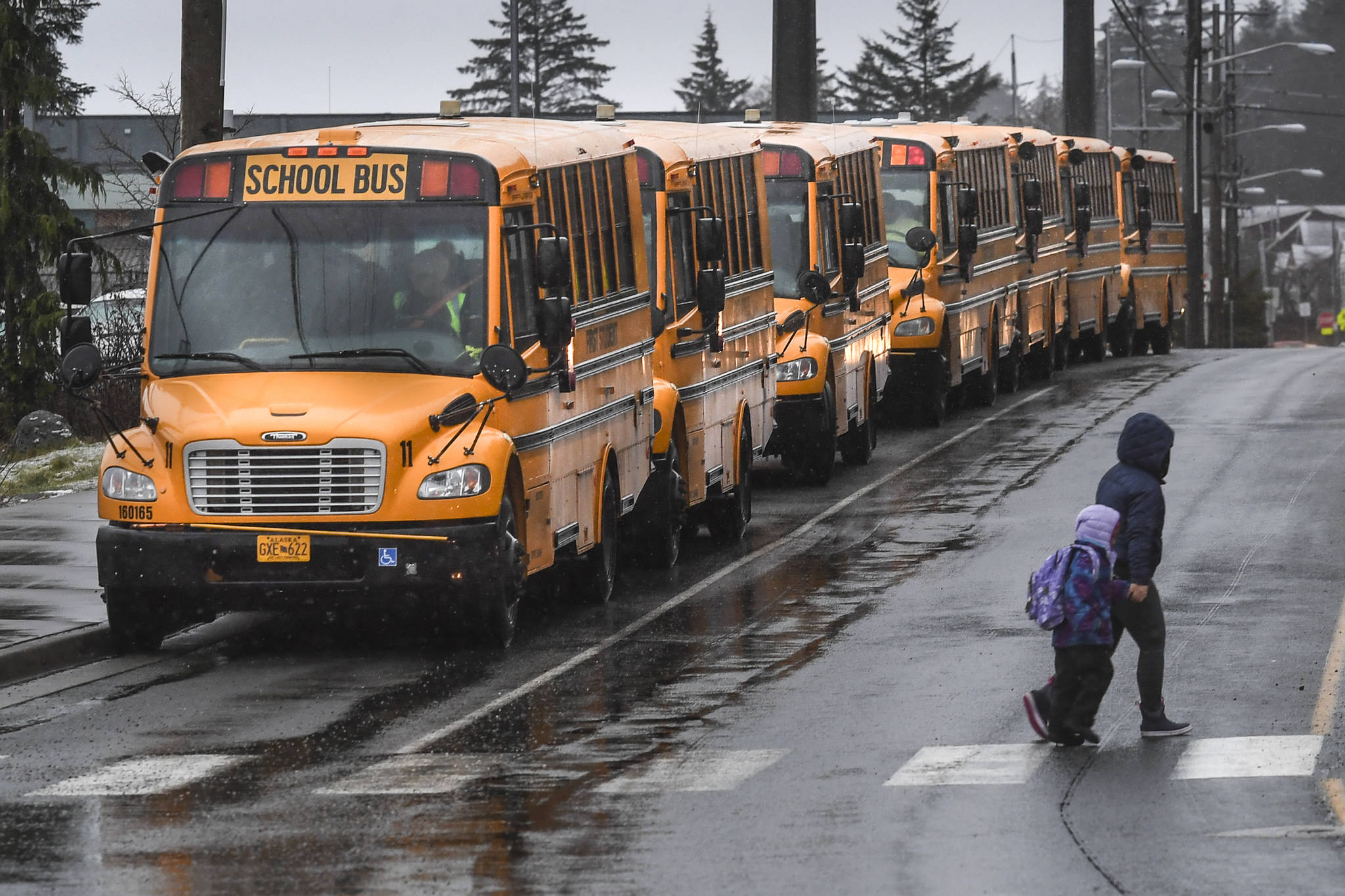A new school bus is coming to Juneau as the result of a multibillion-dollar international scandal.
The Juneau School District will be one of eight districts to benefit from $4.4 million to replace 33 diesel school buses with new clean-burning buses under the Volkswagen Settlement School Bus Replacement Program, said Alaska Energy Authority in a news release Tuesday. The Alaska Energy Authority is a public corporation of the state tasked with reducing the cost of energy in Alaska.
Alaska received nearly $8.13 million as a result of Volkswagen’s federal settlement, according to AEA, and 60% of that is being disbursed for school bus replacements.
Juneau School District does not own its buses. Instead, it contracts with First Student. AEA preliminary design and environmental manager Betsy McGregor said in a phone interview it was First Student that applied for the grant.
[Juneau’s electric vehicle total continues to surge]
“The Juneau School District appreciates First Student’s efforts in applying for the school bus replacement program,” said Juneau School District chief of staff Kristin Bartlett in an email. “It is a positive step toward improving air quality in our community and around our school buildings.”
Kevin Hansen, manager for First Student, said in a phone interview that while he does not know much about the grant application — that, he said, was handled by a corporate office in the Lower 48 — there is a 15-year-old bus scheduled to be replaced soon.
Hansen said the bus does not contain any Volkswagen parts, but a newer bus will definitely have less impactful emissions.
“I know that we do have a unit that is due to be replaced this year,” Hansen said, “and it will be replaced this summer.”
First Student applied for one bus in Juneau, one in Kodiak Island Borough and four in the Matanuska-Susitna Borough, McGregor said.
Additional beneficiaries of the grants include Alaska Gateway School District, Anchorage School District, Kenai School District and Southeast Island School District, according to AEA.
Buses in applications were ranked based on the amount of ambient nitrogen oxides (NOx) and diesel particulate matter in the areas that the buses operate, according to AEA. Also under consideration were the presence of at-risk communities exposed to these pollutants, cost effectiveness at reducing NOx and voluntary matching funds.
“By replacing older engines with new technologies, the school buses will help improve air quality in these areas of the state,” said AEA Executive Director Curtis W. Thayer in a news release. “The new buses will result in a reduction of 24.6 short tons of NOx and 1.8 short tons of fine particulate matter over the remaining lifetimes of the replaced school buses.”
As part of the replacement program, McGregor said the buses must be used in the same manner as the vehicles they are replacing for at least five years.
Also, per the grant’s stipulations, it will be the end of the line for the old buses.
“They have to destroy the existing bus,” McGregor said.
• Contact reporter Ben Hohenstatt at 907-523-2243 or bhohenstatt@juneauempire.com. Follow him on Twitter at @BenHohenstatt

